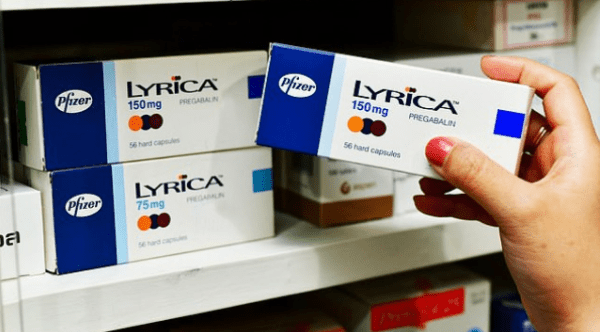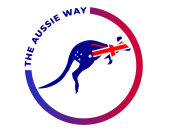A painkiller prescribed to millions of unsuspecting patients is ruining the lives of young Australians and tearing their heartbroken families apart.
Boxes of the highly addictive painkillers called Lyrica, manufactured by the pharmaceutical company Pfizer, can be purchased from chemists across Australia for as little as $6.
While millions of scripts for the cheap and accessible drug continue to be filled by doctors, Lyrica has left a growing number of Australians wishing they had never popped their first pill.
Several reports have been found of how the pill proved toxic to Aussies using it.

First was Christalla Andreadis, 52, who was first introduced to the pill after she met a severe spinal injury in a horror car crash back in 2017. The finance broker on the left used the drug to numb her chronic pain and reported that doctors continued to increase her dosage until she was taking 450mg of that pill a day.
Ms. Andreadis told A Current Affair if she had known what she does today about the dangerous pills, she would never have taken such a highly addictive painkiller in the first place.
It’s taken around two years to wean herself off the high dosage, but the broker admits she still takes a small amount to feed her debilitating addiction, which is scary.
She said that; It took every ounce, every fibre of her body to come off completely of the pill effects.
She was worried about where that would end. And that she couldn’t see light at the end of the tunnel. She was fed up!
A similar heartbreaking incident occurred to Gayle Wilson’s daughter Anita, who, before being prescribed Lyrica, was described as a bright and bubbly young woman.
The 33-year-old started taking the drug knowing about its pharmaceutical benefits after she had her wisdom teeth removed in 2017; but soon after she became addicted to the pills and began to self-medicate.
Gayle said her daughter was taking a lethal combination of opioids and 350mg of Lyrica a day, leaving her completely exhausted and barely able to function.
Her concerned mother began filming Anita falling asleep while standing up or face-down at a table, in hopes the confronting footage would shake her awake.
Then she added her husband gave their daughter exactly what she wanted because of her addiction that led to her health problem and death at that age. As many tablets as could get, he gave them all to her.
Gayle said she went to her daughter’s GP in hopes he could find a solution, but left the appointment feeling disillusioned.
Anita died of an overdose last year, leaving her bereft mother convinced she could have done more to save her.
An emotional Gayle said, holding back tears she felt she had failed their daughter. They couldn’t find anything else to do to keep her alive.
Lyrica, also known as Pregabalin, was originally prescribed to treat patients with epilepsy and nerve pain but has since been used to treat other conditions.
The drug was added to Australia’s pharmaceutical benefits scheme in 2013, with Pfizer forking out millions to market the drug to GPs across the nation.
Scripts for the drug have grown from 36,000 in 2012 to four million in 2018, which is huge.
Lyrica survivors claim they were given no warning of the potential side effects when they were first prescribed the addictive painkiller.
Head of neurology at St Vincent’s Hospital in Melbourne, Mark Cook, told the ABC last year that the drug was being incorrectly prescribed to treat different pain suffered by people, particularly those living in regional areas.
In an interview Professor Cook said that over the months he would see hundreds of Australians taking pregabalin, most of the time for pain, so one can see people who’ve had ankle injuries or surgery to their abdomen, for instance, who are being prescribed pregabalin
Several patients who attempted to wean themselves off the drug said they experienced dark suicidal thoughts that left them unable to get out of bed.
Others said the withdrawal symptoms were comparable to those of substance misuse.
Like Sydney Psychiatrist Dr. Tanveer Ahmed, many other medical professionals compared the drug to the Santa Claus on a pill.
Dr. Ahmed said the restrictions placed on other pain medications like codeine and opioids had left a gap in the market for a cheap and accessible pill like Lyrica.
He also said that there really is a little restriction, one can get a repeat at a pharmacy without question, and that anyone can go to doctors and there is very little monitoring in those places.
He said those addicted to the painkillers required a multi-disciplinary team of experts that had to be resourced by health authorities.
The psychiatrist said access to this kind of holistic team support required a waiting list and was particularly hard to get in outer-metropolitan and regional areas.
He mentioned that as a medical community, but also the broader community, they didn’t think it was addictive, didn’t think it could be that dangerous.
They now get taught that if they give someone a pill like Lyrica, they almost expect them to take double the amount you’ve given them, at the end.
When contacted by A Current Affair, Pfizer directed questions to Viatris, a company that emerged late last year after the Pfizer division joined forces with another pharmaceutical company. However, Pfizer’s branding is still printed on the packaging of Lyrica boxes.
